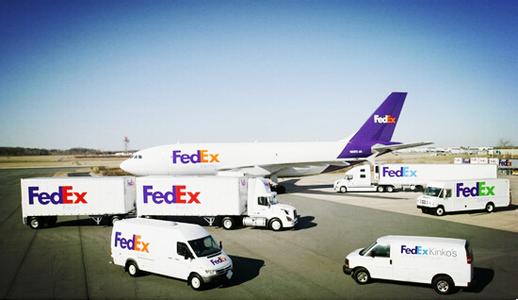Reporter: Where and when did you get the idea for Federal Express?

Smith: The original idea came in two parts. The first part was when... I was a student at Yale and I was writing a paper about the computerized society that was on the horizon. It was pretty clear then, with IBM installing the big computers around, that the world was going to change. And the paper was about how this was going to change a lot of things, and in particular it was going to change the way things had to be distributed and moved to support those automated devices. Then I sort of let that lie. I didn’t get a particularly good grade on it, as I recall. I don’t think it was prescient, or brilliant in any respect. When I graduated from Yale in 1966,I went into the service, like a great percentage of my classmates at that time. The Vietnam War had begun in earnest, and I spent four and a half years in the Marine Corps. That’s when I sort of crystallized the idea for FedEx on the supply side, how to solve the problem that had been identified in that paper. In the military there’s a tremendous amountof waste. The supplies were sort of pushed forward, like you push food onto a table. And invariably, all of the supplies were in the wrong place for where they were needed. Observing that and trying to think about ways to have a different type of a distribution system is what crystallized the idea. The solution was, in my mind, to have an integrated air and ground system, which had never been done. And to operate not on a linear basis, where you try to take things from one point to another, but operate in a systemic manner. Sort of the way a bank clearing house does, you know? They have a bank clearing house in the middle of all the banks and everybody sends someone down there and they swap everything around. Well, that had been done in transportation before: the Indian post office, the French post office. American Airlines had tried a system like that shortly after World War II. But the demand side and supply side had really not met at an appropriate level of maturation. By the early ‘70s when I’d gotten out of the service it was very clear that this new society was coming in earnest. And so, at that point I said, “What the hell, let’s try to put it together.” And that’s how FedEx came to be. And then from that point forward, the requirements for this type of system were so profound and so big, really for the next 25 years to this date we’ve simply been running just to keep up with the requirements. And that’s what led to the hundreds of planes and the thousands of trucks. I wish it was something that I could say I was so smart. And that’s what we’ve been doing for the last quarter century.












